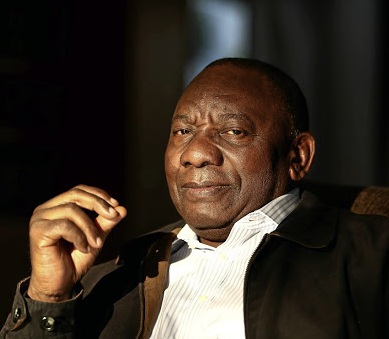Noone doubts that Mr. Ramaphosa sincerely wishes to uprootcorruption. And his hiring of honest cops and prosecutors is an essential step in that direction. But he will struggle unless he also tackles some of the underlying enablers of graft. One problem is that many in the ruling African National Congress (ANC) believe that the party should control all the levers of power, and that the government should control “strategic” sectors such as powerplants, railways and ports.
拉馬福薩根除腐敗的誠(chéng)心毋庸置疑。雇傭誠(chéng)信的警察和檢察官是朝這個(gè)方向邁出的重要一步。但除非根除腐敗的背后因素,否則接下來(lái)將舉步維艱。一個(gè)問(wèn)題是,執(zhí)政黨非洲人國(guó)民大會(huì)中的許多人認(rèn)為,該黨應(yīng)該控制所有的權(quán)力杠桿,政府應(yīng)該控制發(fā)電廠、鐵路和港口等“戰(zhàn)略性”行業(yè)。
Atradition of “deploying” party loyalists to run state-owned firms transmogrified, under Mr Zuma, into a habit of planting cronies into positions that enabled them to steal. The leftists in the governing coalition still say South Africa needs a “developmental” state to steer investment. In fact, state interference has repelled investment. By one estimate, had Mr Zuma been a benign steward, the economy would be 25% bigger.
在祖瑪領(lǐng)導(dǎo)下,“部署”黨的忠誠(chéng)分子經(jīng)營(yíng)國(guó)有企業(yè),已經(jīng)改變了南非的習(xí)慣,即在讓他們?cè)陉P(guān)鍵位置上任人唯親。執(zhí)政聯(lián)盟中的左翼人士仍表示,南非需要“發(fā)展型”國(guó)家來(lái)引導(dǎo)投資。而事實(shí)上,政府的干預(yù)阻礙了投資。據(jù)估計(jì),如果祖瑪是一位好的領(lǐng)導(dǎo)人,南非經(jīng)濟(jì)將會(huì)增長(zhǎng)25%。
Mr Ramaphosa plans to split Eskom into generation, distribution and transmission businesses to make it clearer which bits are losing money. He should go further. The state should not be generating power at all. It should break up and sell Eskom, and regulate the companies that buy it. The same goes for the state firms that run airports, fly planes and dig up diamonds.
拉馬福薩計(jì)劃將Eskom的業(yè)務(wù)拆分為發(fā)電、分銷和傳輸,以明確哪些業(yè)務(wù)正在虧損。他應(yīng)該走得更遠(yuǎn)。國(guó)家根本就不應(yīng)發(fā)電。而應(yīng)拆分并出售Eskom,并監(jiān)管買方。經(jīng)營(yíng)機(jī)場(chǎng)、駕駛飛機(jī)和開(kāi)采鉆石的國(guó)有企業(yè)也是如此。

There is a risk that privatisation could be corrupted. State assets could be transferred cheaply and opaquely to ANC bigwigs claiming to promote “black economic empowerment”, just as private assets have been in the past. However, this risk can be mitigated if assets are sold via transparent auctions and the markets thus created are regulated properly. Also, consumers will have to start paying their electricity bills, something many have grown used to avoiding. If Mr Ramaphosa wants to be remembered as the president who turned the lights back on, he will need to harness the power of the market.
私有化存在腐敗的風(fēng)險(xiǎn)。國(guó)有資產(chǎn)可以廉價(jià)而不透明地轉(zhuǎn)移給非國(guó)大的權(quán)貴們,并聲稱要促進(jìn)“黑人經(jīng)濟(jì)賦權(quán)”,正如過(guò)去的私有財(cái)產(chǎn)。然而,如果通過(guò)透明拍賣出售資產(chǎn),并對(duì)由此創(chuàng)建的市場(chǎng)進(jìn)行適當(dāng)監(jiān)管,可以緩解這種風(fēng)險(xiǎn)。此外,消費(fèi)者將不得不開(kāi)始支付電費(fèi),而很多人早就習(xí)慣了不交電費(fèi)。如果拉馬福薩希望人民記住他作為總統(tǒng)為大家打開(kāi)了燈,那么將需要利用市場(chǎng)的力量。












